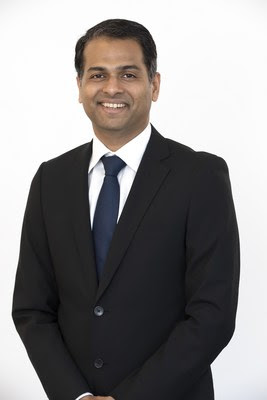– النسخة السابعة من تقرير زيورخ حول “المزايا المدفوعة للعملاء” الذي يستند إلى مطالبات قُدمت للشركة لتغطية التأمين على الحياة على مدى ثلاث سنوات، تقدم رؤى فريدة حول المخاطر الصحية المتطورة في الشرق الأوسط
– التقرير يشير إلى أن مرض السرطان لدى النساء والنوبات القلبية والسكتات الدماغية لدى الرجال يعدوا من الأسباب الرئيسية لمطالبات تغطية الأمراض الخطيرة وتعويضات التأمين على الحياة
– كوفيد-19 يعتبر ثاني أكبر سبب لمطالبات التأمين على الحياة بعد النوبة القلبية والسكتة الدماغية
– 52٪ من إجمالي المزايا المدفوعة للعملاء كانت مطالبات لتغطية التأمين على الحياة، بينما 47٪ منها كانت مطالبات للتعويض عن نفقات المعيشة ونُسبت إلى أمراض خطيرة
– على مدى السنوات الثلاث الماضية، دفعت شركة زيورخ للعملاء مطالبات قدرها 144 مليون دولار
دبي، الإمارات العربية المتحدة31 مايو 2022/PRNewswire/ — أصدرت شركة زيورخ إنترناشيونال لايف ليمتد، وهي جزء من مجموعة زيورخ للتأمين السويسرية، النسخة السابعة من تقرير “المزايا المدفوعة للعملاء في الشرق الأوسط” الذي يستند إلى المطالبات الرسمية التي قدمت للشركة لتغطية المعيشة والتأمين على الحياة في الفترة الممتدة من يناير 2019 إلى ديسمبر 2021، ويهدف إلى زيادة الوعي حول ضرورة التأمين على الحياة والحماية من الأمراض الخطيرة لضمان المزيد من الاستقرار والأمان المالي.

ويشير التقرير إلى أن السرطان يأتي في طليعة الأمراض الخطيرة التي تم تغطيتها من قبل الشركة، بنسبة(48٪)،خلال السنوات الثلاث الماضية، بينما جاءت النوبات القلبية والسكتات الدماغية في المرتبة الثانية بنسبة(35٪)، وفيروس كوفيد-19 في المرتبة الثالثة (24٪).
ووفق التقرير، شكل الرجال نسبة 66 ٪ والنساء 34 ٪ من المطالبات لتغطية أمراض خطيرة، واستحوذ الرجال على الحصة الأكبر (78٪) من المطالبات لتغطية التأمين على الحياة والنساء 22٪. وكان السرطان السبب الرئيسي لكل من مطالبات تغطية الأمراض الخطيرة (84٪) والتأمين على الحياة (41٪) بين النساء، بينما كانت النوبات القلبية والسكتات الدماغية المصدر الرئيسي لكل من المطالبات لتغطية الأمراض الخطيرة (62٪) ومطالبات التأمين على الحياة (41%) بين الرجال.
وفي إطار تعليقه على نتائج التقرير، قال ويلسون فارغيز رئيس العمليات في زيورخ: “إن قاعدة عملائنا ليست سوى عينة نموذجية تمثل المجتمع المتنوع في الإمارات. وتعكس النتائج المستخلصة من التقرير تطور وتغير المخاطر الصحية التي نواجهها خصوصًا بعد الجائحة، لذا من الضروري أن يعمد الأشخاص المستقلين ماليًا إلى حماية أنفسهم وأحبائهم وتحصين ذاتهم ماليًا، واتخاذ إجراءات استباقية بشأن صحتهم. ويعتبر أسلوب الحياة النشط والنظام الغذائي الصحي والفحوصات الطبية المنتظمة ضرورية لتحديد عوامل الخطر والحد منها والتمتع بنوعية حياة أفضل”.
ونظرًا للتنوع القائم بين المطالبين من ناحية العمر والجنس ونمط الحياة يؤكد التقرير ضرورة تقييم احتياجات التأمين على المستوى الفردي، لكي يتمتع جميع أفراد العائلة بالتغطية التأمينية الفريدة وحلول الحماية التي تتجاوز التأمين الطبي الموحد.
وتابع فارغيز: “تتمثل رؤيتنا في تمكين المجتمع ليكون جاهزًا للحياة. وقد حرصت شركة زيورخ على دفع نحو 98% من المطالبات على الحياة وذلك انطلاقًا من التزامها بدعم العملاء الذين هم بأمس الحاجة إليها”.
ووفق التقرير، بلغ متوسط عمر المطالبين بتغطية الأمراض الخطيرة 49 عامًا وبلغ عمر أصغر مطالب أربع سنوات وعمر أصغر مطالب بالغ 29 عامًا، وبلغ متوسط عمر المطالبين بتعويضات التأمين على الحياة 54 عامًا وعمر أصغر مطالب 28 عامًا.
وفي السنوات الثلاث الماضية بلغت قيمة أعلى مطالبة تم تقديمها لتغطية مرض خطير مليون دولار، وأعلى مطالبة فردية لتعويضات التأمين على الحياة 5.93 مليون دولار. ودفعت الشركة 144 مليون دولار من المطالبات في الفترة الممتدة من يناير 2019 إلى ديسمبر 2021، وشكلت المطالبات المتعلقة بتغطية الأمراض الخطيرة نحو 47% منها، والمطالبات المتعلقة بتغطية تعويضات التأمين على الحياة 52% منها، والمطالبات لتغطية الإعاقة الدائمة والشاملة 1% منها.
لمحة عن مجموعة زيورخ
مجموعة زيورخ للتأمين (زيورخ) هي شركة تأمين رائدة متعددة المجالات تخدم أكثر من 55 مليون عميل ما بين أفراد وشركات صغيرة ومتوسطة وكبيرة، وتقدّم باقة واسعة من منتجات وخدمات التأمين على الممتلكات والتأمين على الحياة في أكثر من 210 دول وإقليم. وتتطلع الشركة التي تأسست منذ أكثر من 150 عامًا إلى إحداث نقلة نوعية في قطاع التأمين. وإلى جانب توفير خدمات التأمين على الحياة، تسعى زيورخ جاهدة إلى تقديم خدمات وقائية تعزز الرفاهية والقدرة على التكيف مع التغيرات المناخية.
تسعى زيورخ إلى بلوغ هدفها المتمثل في خلق مستقبل أكثر إشراقًا للجميع، ولتكون واحدة من أكثر الشركات المسؤولة وتأثيرًا في العالم لذا تهدف للوصول إلى صفر انبعاثات كربونية مع حلول العام 2050، وقد صنفت كواحدة من أكثر شركات التأمين استدامة في العالم، وفق تقييم استدامة الشركات العالمية من ستاندر آند بورز. توظّف المجموعة التي تتخذ من زيورخ، سويسرا مقرًا رئيسيًا لها 56,000 شخص تقريباً. الشركة القابضة، Zurich Insurance Group Ltd (ZURN) ، مدرجة في البورصة SIX السويسرية وتتمتّع ببرنامج إيصال الإيداع الأمريكي من المستوى الأول (ZURVY) ، ويتم تداولها بشكل مباشر في أسواق التداول OTCQX. مزيدٌ من المعلومات عن زيورخ مُتاحة على https://www.zurich.com/en
لمحة عن زيورخ إنترناشيونال لايف ليمتد
زيورخ إنترناشيونال لايف ليمتد جزءٌ من مجموعة زيورخ للتأمين تمّ تأسيسها في جزيرة مان وتم ترخيصها من قبل هيئة الخدمات المالية في جزيرة مان. تمتلك الشركة فروعاً قائمة ومسجلة في دولة الإمارات العربية المتحدة ومرخص لها من قبل مصرف الإمارات العربية المتّحدة المركزي، وفي البحرين ومرخّص لها من قبل مصرف البحرين المركزي، وفي مركز قطر للمال ومرخص لها من قبل هيئة تنظيم مركز قطر للمال. الشركة مسجّلة في دولة الإمارات العربية المتحدة (رقم التسجيل 63) بموجب القانون الاتحادي لدولة الإمارات العربية المتحدة رقم 6 لعام 2007، وتخضع أنشطتها في الإمارات العربية المتحدة لهذا القانون. مزيد من المعلومات عن زيورخ إنترناشيونال لايف ليمتد مُتاحة عبر الرابط التالي https://www.zurich.ae /
Photo – https://mma.prnewswire.com/